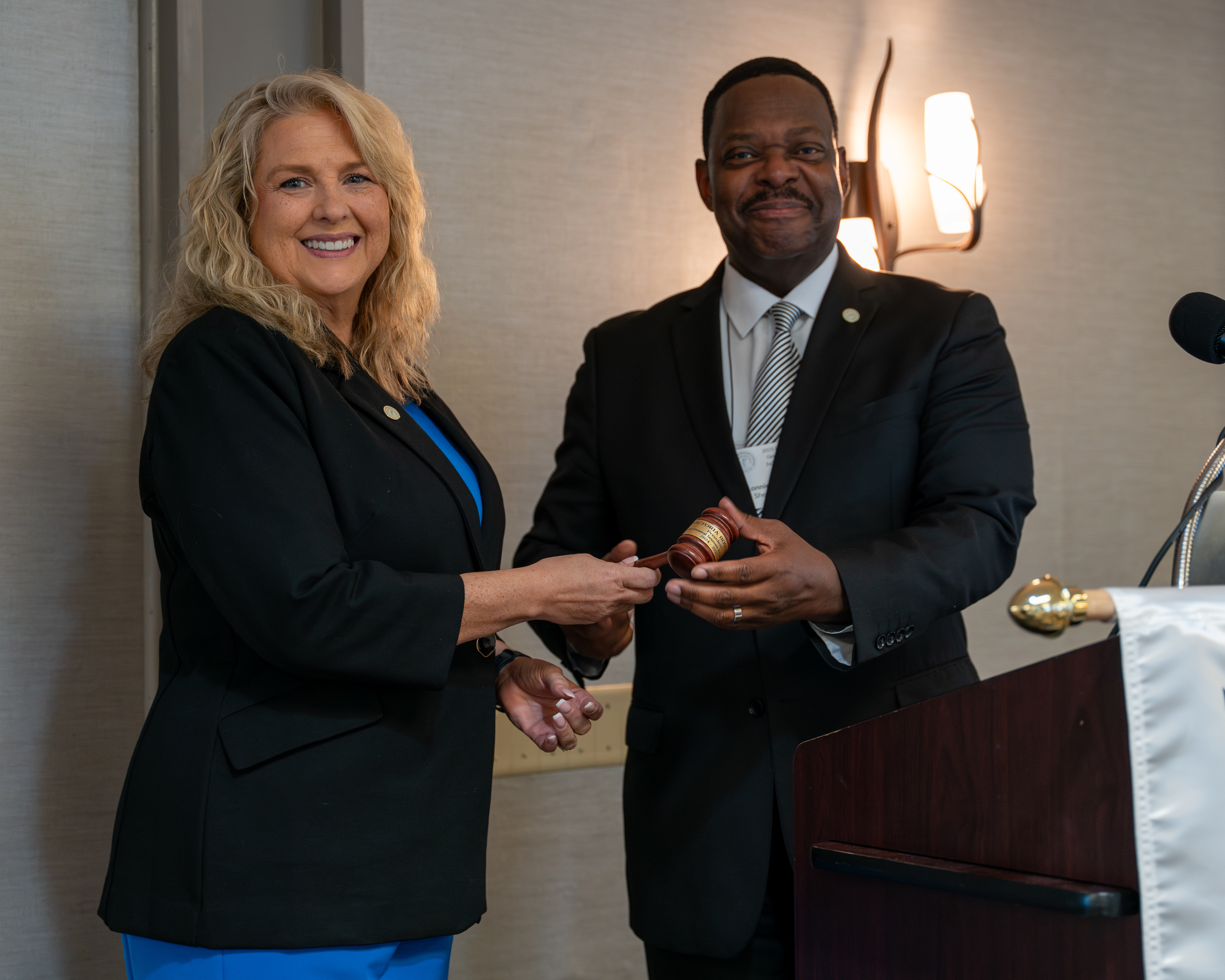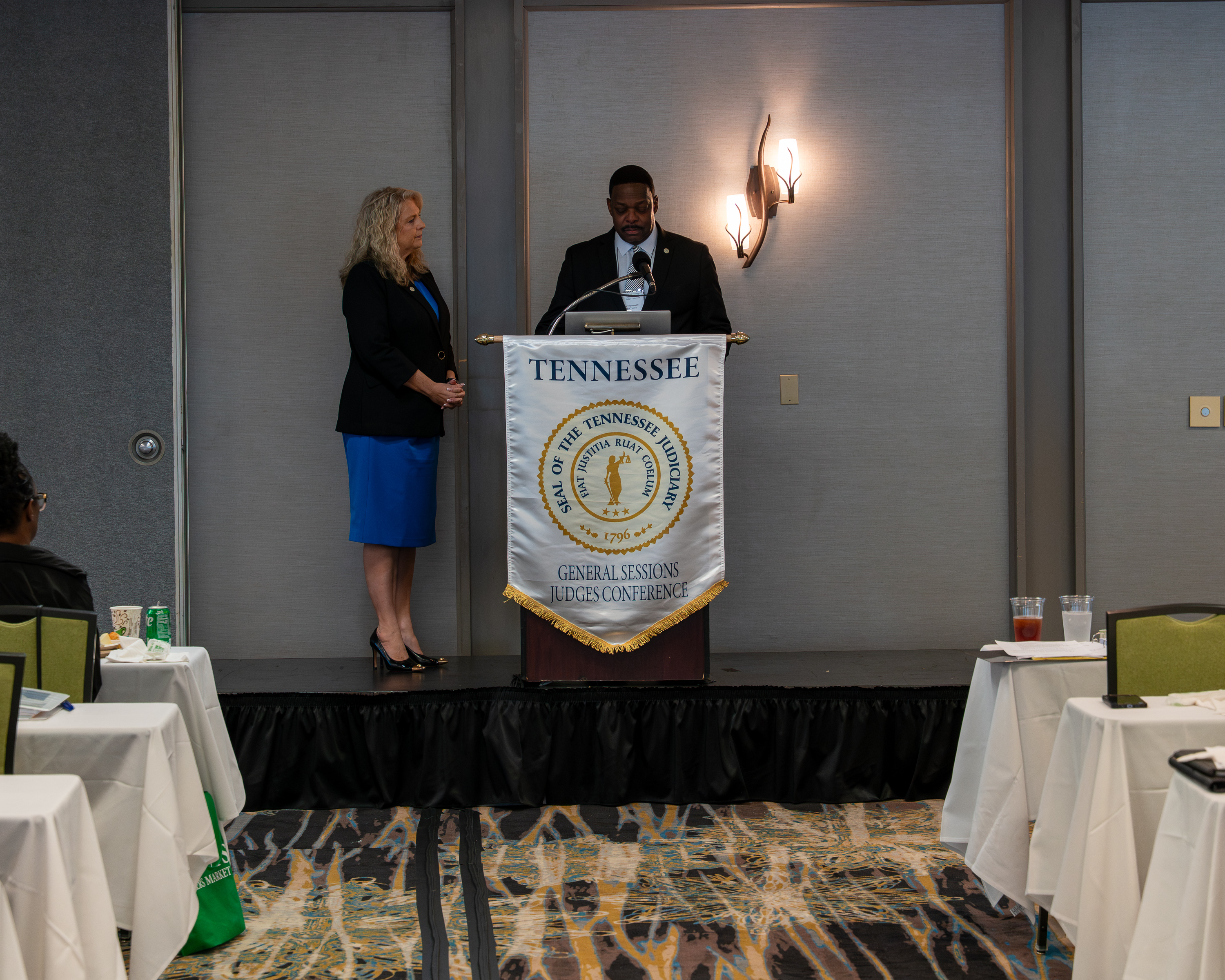Shelby County General Sessions Court Judge Lonnie Thompson was one of five children born to a single mother in an impoverished neighborhood in South Memphis. He attended Memphis City Schools with no idea he would end up in the legal field. Instead, Judge Thompson dreamed of a future in music.
“My ambition was to be a concert pianist, a classical pianist,” he said. “I studied piano in the early part of my life and was ultimately awarded a scholarship in high school to attend the prestigious Oberlin College Conservatory of Music.”
Judge Thompson went to Oberlin to pursue a degree in piano performance. One day while visiting the student government association, he heard students protesting Oberlin’s financial support of the South African government.
“At that time, the system of apartheid in South Africa, a very repressive regime, was alive and well,” said Judge Thompson. “So, we were marching to the house of the president of our college to ask that the administration remove the financial support of the South African government.”
The students, including Judge Thompson, were temporarily arrested for civil disobedience and later released to their parents without formal charges.
“That began my transition from musician to lawyer.”
Judge Thompson graduated from Oberlin College with dual majors in political science and piano. He took a year off before heading to Georgetown Law School and graduating in 1987. After graduation, Judge Thompson worked as a legislative assistant on capitol hill, as a law clerk with Judge Odell Horton in the United States District Federal Court and as an assistant city attorney, appointed by then Mayor Willie Herenton, before becoming a judge.
“All of those experiences really shaped and molded me for working in the judiciary and doing the things I do right now,” said Judge Thompson. “I think general sessions is a very, very special court because it’s the court of first impression. Our citizens get to see exactly what the court system is like, and they are more likely to encounter us before they will any judge on any other level.”
In September, Judge Thompson was elected to serve as the president of the General Sessions Judges Conference.
“I think that we have a great judicial system here in Tennessee and I am just honored to be a part of an outstanding group of jurists to continue to promote the administration of justice,” he said. “I would really like to be a part of promoting efficiency in terms of implementing case management techniques that can help reduce delays in how we hear and process our cases. This would include setting clear timelines for cases and encouraging early resolution through either mediation or settlement discussions.”
Also, high on his list is community engagement.
“I hear a significant amount of pro se cases and sometimes it can be frustrating when our pro se litigants, in particular, don’t understand the process,” said Judge Thompson. “I think judges can do a better job in engaging with the community, providing resources and educating our citizens about the legal process so that they can be prepared when they have to encounter the judicial system.”
Judge Thompson will serve as president for one year. As for his music career, he still tickles the ivories.
“I play piano and organ for a local church here in Memphis every Sunday.”


